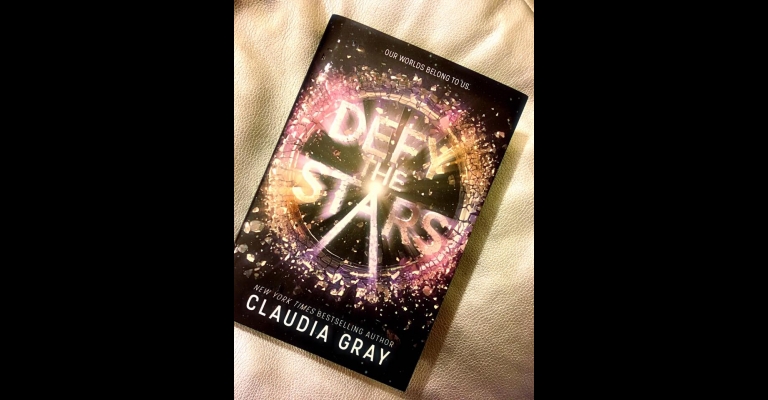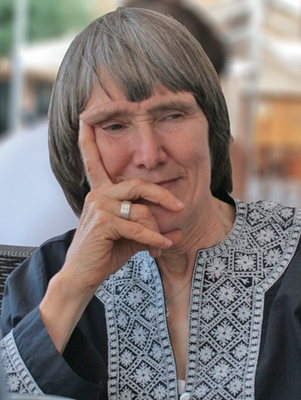Sci-fi story with resonance
“Defy the Stars” by Claudia Gray
Little, Brown and Company, 2017
Noemi Vidal is a 17-year-old soldier in the army of Genesis, a colony of the planet Earth that once rebelled against Earth’s oppression. The resulting war ensured Genesis’ independence for three generations, but recently Earth has attacked again with new fighter ships operated by mercs – human-looking robots programmed to pilot fighter spacecraft without fear or pity. (“What kind of cowards go to war but refuse to fight it themselves?” muses Noemi.) Faced with Genesis’ sure defeat, Noemi and 74 other fighter pilots have volunteered to undertake a suicidal attack on the Genesis Gate, thus destroying the space/time shortcut that allows Earth to reach Genesis from opposite side of the galaxy. Three weeks before the mission is scheduled, Earth attacks again. In the ensuing fray, Noemi’s best friend is injured, and Noemi attempts to save her by looking for a sick bay on an elderly research ship from Earth that she finds floating aimlessly in space, abandoned by its crew. Or almost all its crew. The ship still holds Abel, a merc who has been trapped inside it for 30 years. Abel is a technological wonder. His DNA is that of his famous creator/commander, Burton Mansfield, which makes him as close to human as a merc can be. But Mansfield programmed him to obey and protect his commander – and once Noemi boards the ship, she becomes that commander. Noemi soon realizes that Abel’s combination of superhuman calculating power, eidetic memory, and ability to withstand high temperatures make him capable of destroying the Genesis Gate single-handedly. The only snag (besides their mutual knowledge that the attack will destroy Abel as well as the Gate) is that the mission requires a less worn thermomagnetic device than the aging space ship currently possesses. To obtain one, they must travel through a series of Gates to the planets Earth has colonized.
The plot follows their quest, beginning at Kismet, a tropical oasis for Earth’s rich and famous, orbited by thousands of spacecraft filled with homeless people desperate for jobs but not allowed to land. They next visit Cray, Earth’s home for computer engineers, elite scientists, and promising students, all of whom live underground because of the planet’s inhospitable climate. They escape Cray with the essential thermomagnetic device, but they are now tracked by Earth-controlled mercs who have instructions to kill Noemi and take Abel back to his creator. Escaping, they fly to Stronghold, where workers travel in 19th century trains to build high-tech space ships for war – and where Abel is abducted, leaving Noemi to seek him with the help of an Underground that is rebelling against Earth’s tyranny.
During their adventures, Noemi and Abel have turned from enemies to friends, to … what? Abel is perplexed by the unprogrammed, irrational ideas that cross his brilliant mind. Noemi realizes that Abel is a soul trapped in a machine. Does she have the right to command him to engage in a suicide attack on the Genesis Gate, knowing he can’t refuse? If she doesn’t, she and the other Genesis volunteers must die attacking the Gate – and the day of their mission is drawing close. The moral quandary is only one of several in an adventure story that opens out into considerations of determinism and freedom, truth and faith. “The opposite of faith is not doubt,” says Noemi. “The opposite of faith is certainty.” There’s no certainty here, just a complicated devotion that requires re-thinking what it means to be human. The result is a great read with great depths.
Laura Stevenson lives in Wilmington and her most recent novels, “Return in Kind” and “Liar from Vermont,” are both set on Boyd Hill Road.




